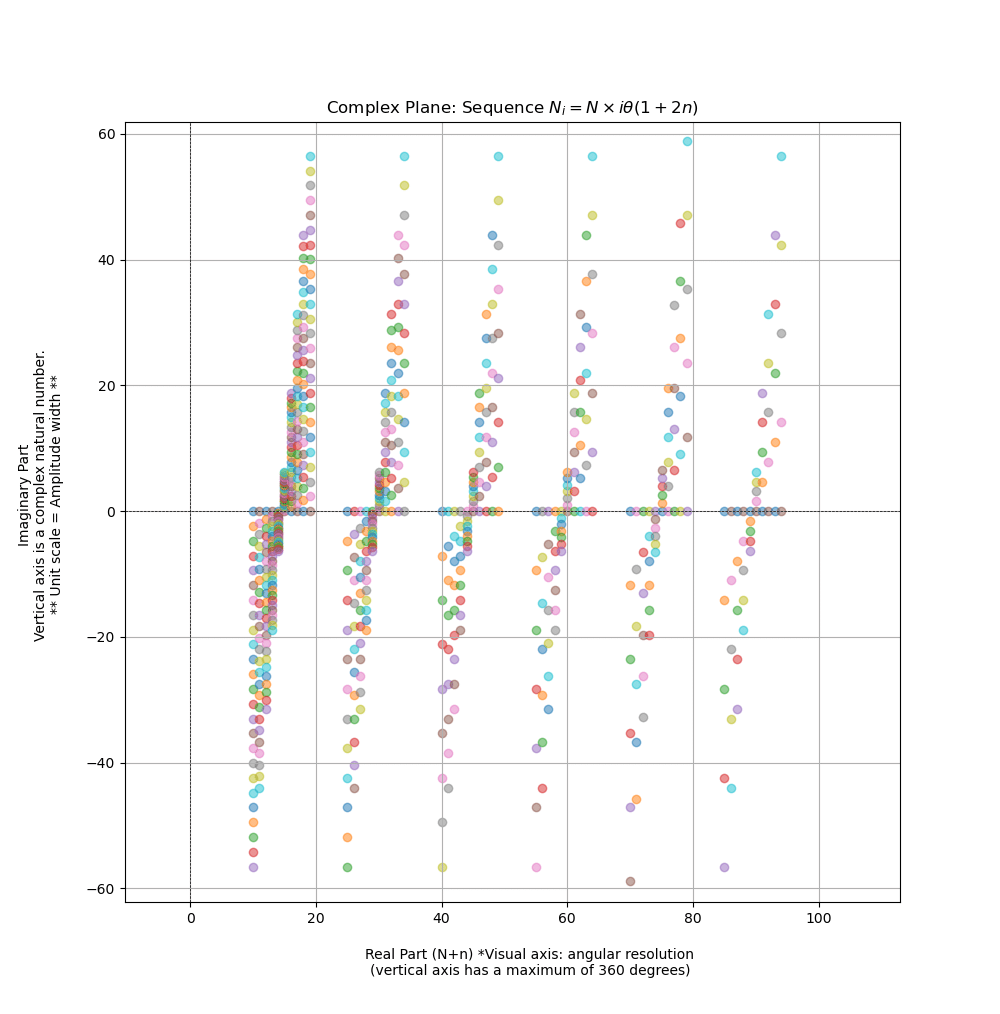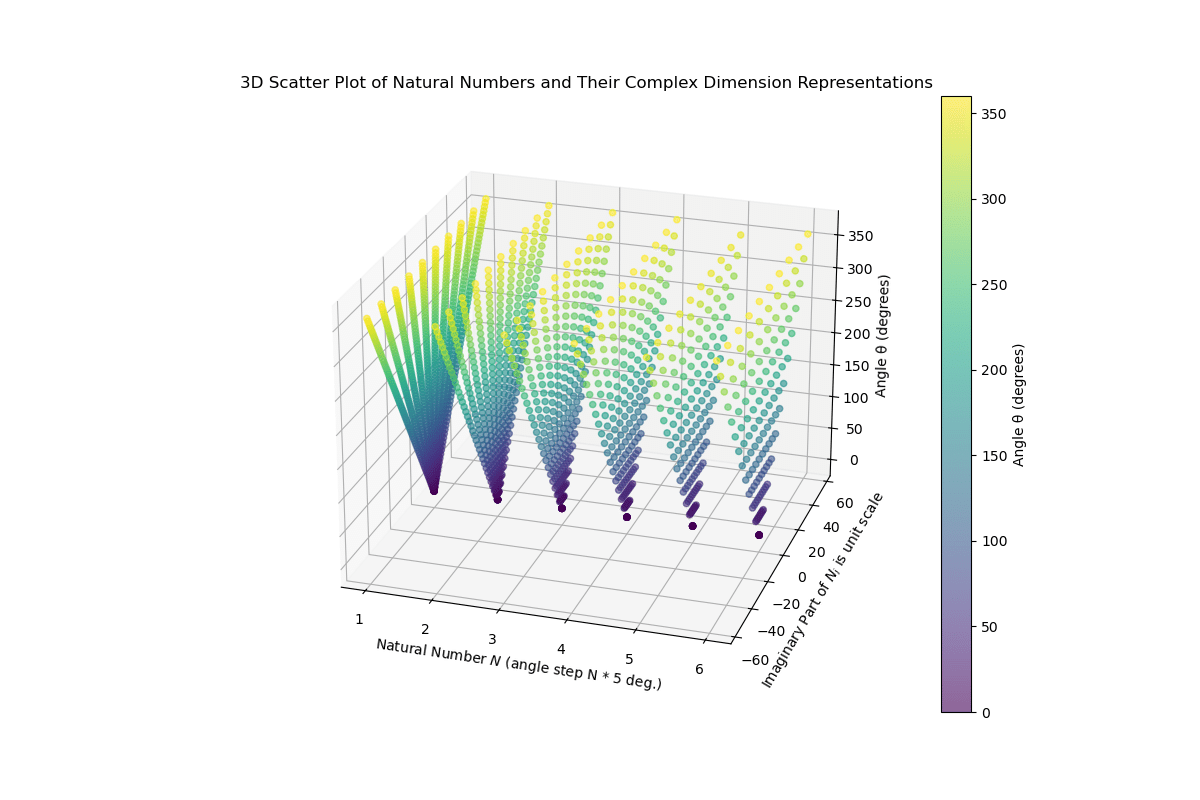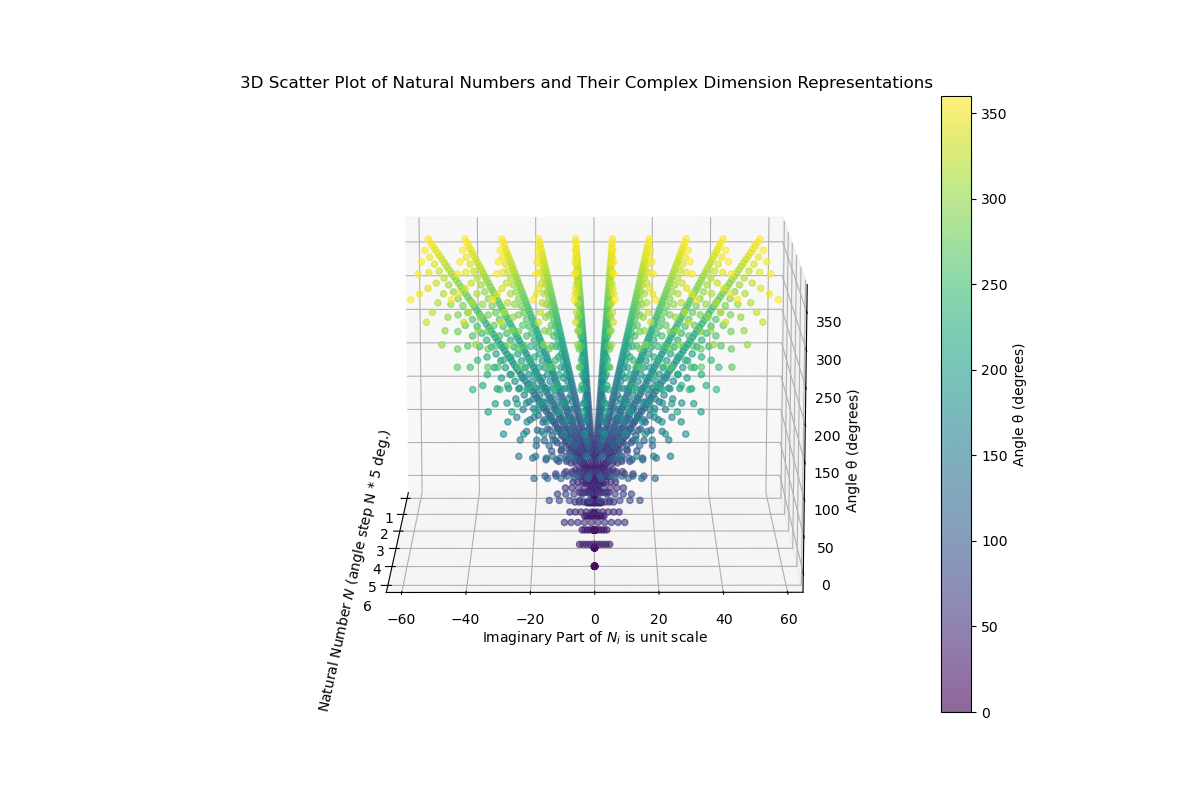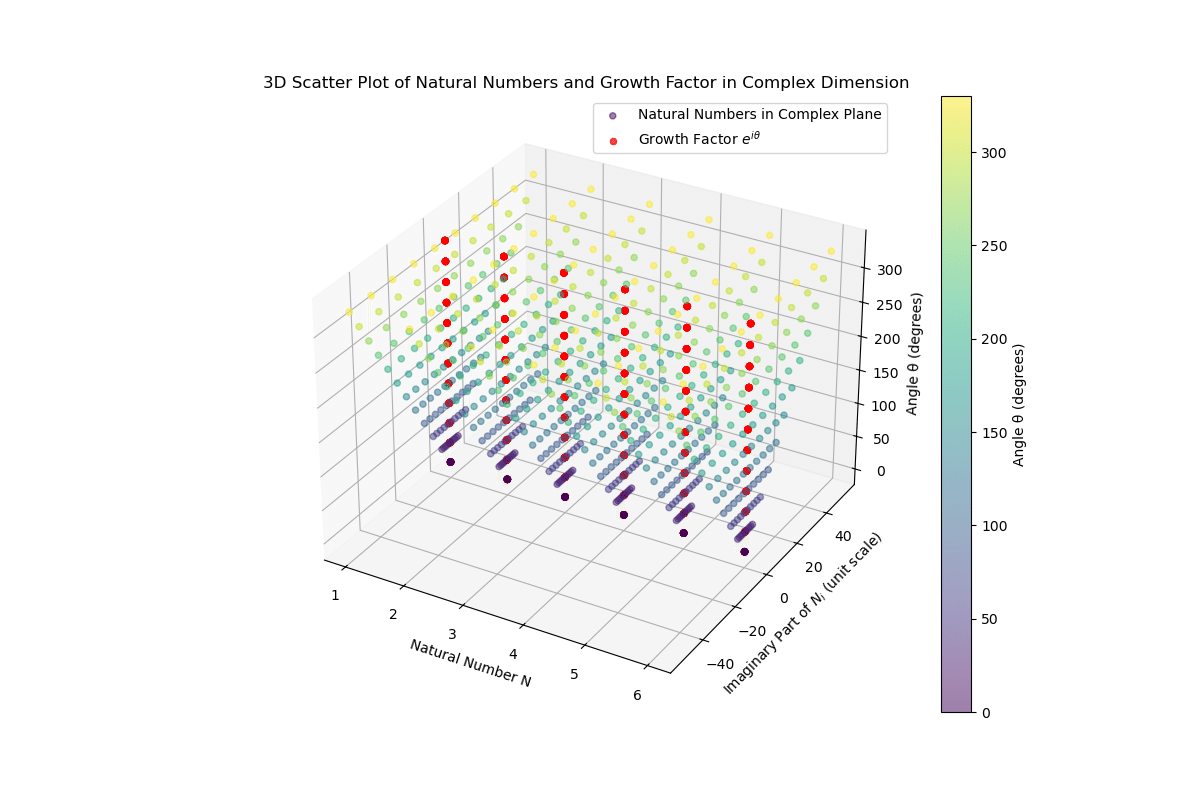
Generalization of Euler's Formula with Variable Unit Scales and a Proposal for a New Natural Number System
Abstract
This paper proposes a generalization of Euler's formula using a variable common difference $${ k }$$ from arithmetic sequences. By considering ``worlds'' with different unit scales, we redefine the system of natural numbers and the base of the Napier constant in each world. This approach reveals a new mathematical structure encompassing the complex number domain. The research represents a collaboration between human creativity and AI analytical capabilities, marking the dawn of a new era.
Introduction
Euler's formula
$$
e^{i\theta} = \cos\theta + i\sin\theta
$$
is a fundamental equation in complex analysis, linking exponential and trigonometric functions. This study extends the formula and introduces a novel perspective by using the common difference $${ k }$$ from arithmetic sequences as a key to bridging different mathematical ``worlds.''
Paper
Graph




The resolution of the complex plane rotation is constant.
Python plot calculation part
def generate_complex_sequence(
real_values, imaginary_values, th_start=0, th_end=360, th_step=30
):
"""Generate a sequence of complex numbers and associated angles."""
complex_numbers = []
growth_factors = [] # List to store growth index
for r in real_values:
for n in imaginary_values:
for theta_deg in range(th_start, th_end, th_step):
theta = np.deg2rad(theta_deg)
k = 1j * theta * (1 + 2 * n)
ni = (r + n) + k
complex_numbers.append((r, ni, theta_deg))
# Calculation of the growth exponent e^{iθ}
e_k = np.exp(1j * theta)
growth_factors.append(
(r, e_k.imag, theta_deg)
) # Preserves real and imaginary parts and angles
return complex_numbers, growth_factorsいいなと思ったら応援しよう!

